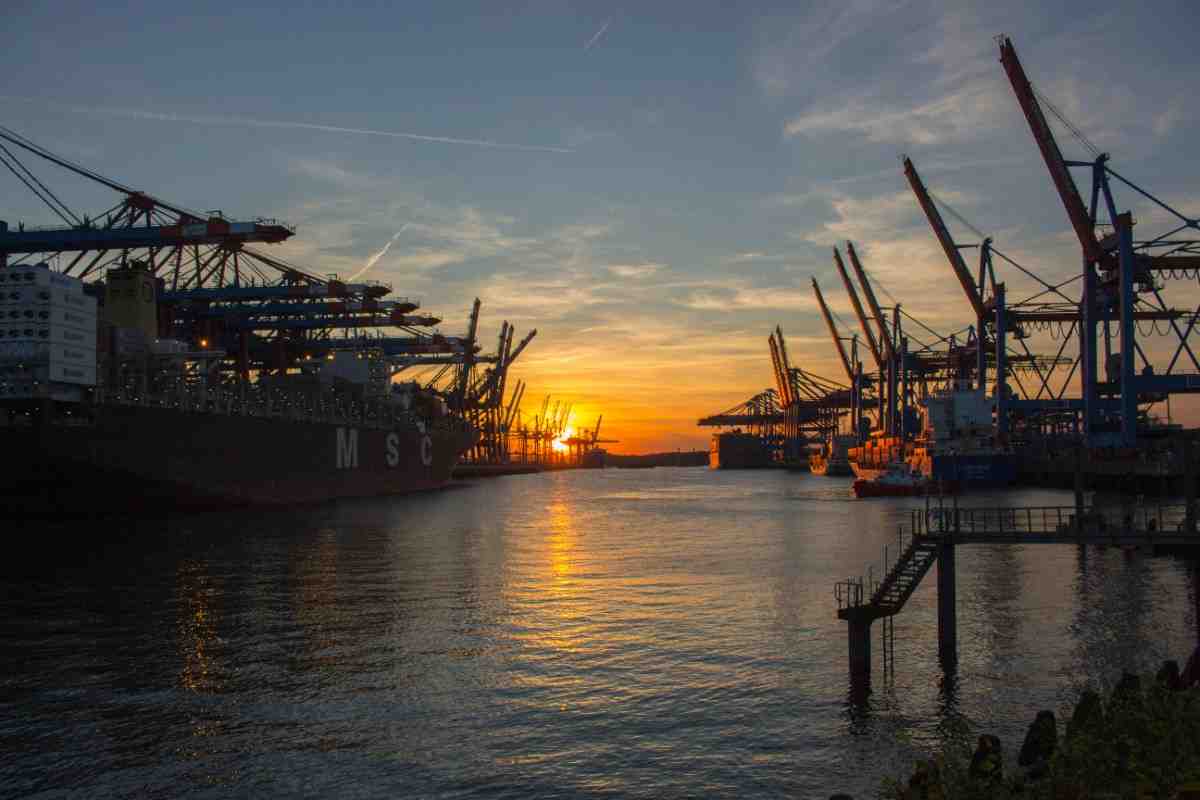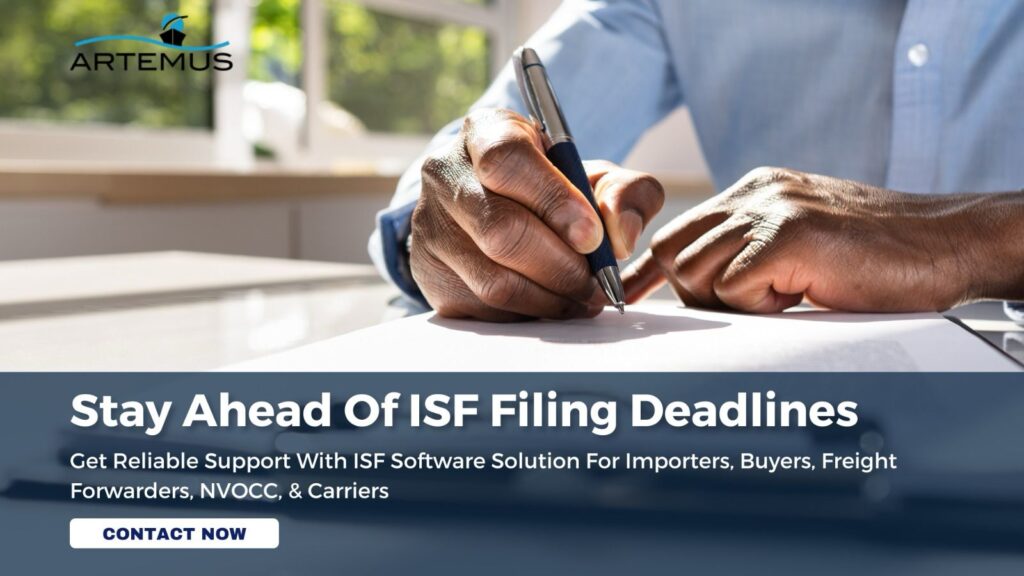
What Is Inbound Logistics & Outbound Logistics? A 2025 Guide
In the dynamic world of supply chain management, understanding the nuances of inbound and outbound logistics is crucial for operational

In the complex world of logistics, the roles of freight forwarders and brokers stand out as vital cogs in the supply chain machinery. While both facilitate the movement of goods, understanding their distinctions is crucial for businesses navigating international trade. Freight forwarders act as intermediaries between shippers and carriers, managing the transportation of cargo from point A to B seamlessly.
On the other hand, brokers specialize in facilitating transactions between buyers and sellers, ensuring compliance with customs regulations and documentation requirements. In this blog, we’ll delve into the differences between freight forwarders and brokers, shedding light on their unique responsibilities and how they impact the shipping process.
Additionally, we’ll explore how Artemus Transportation Solutions offers specialized software solutions tailored to the needs of both freight forwarders and brokers – AMS and ISF software solutions.
Table Of Contents
While both play pivotal roles in the transportation industry, they serve different functions and cater to distinct needs. In this article, we’ll delve into six key differences between a freight forwarder and a broker to help you make informed decisions for your shipping requirements.
Forwarder: A freight forwarder offers a comprehensive range of services, including booking cargo space, arranging transportation, and managing documentation for international shipments.
Broker: A broker typically specializes in facilitating transactions between shippers and carriers, focusing on securing the best rates and routes for shipments.
Forwarder: Freight forwarders often assume greater responsibility and liability for the shipment, acting as a single point of contact for all logistics-related activities.
Broker: Brokers primarily act as intermediaries and do not typically assume liability for the cargo, as their role is more transactional in nature.
Forwarder: Freight forwarders may own or lease transportation assets, such as trucks, ships, or warehouses, to facilitate the movement and storage of goods.
Broker: Brokers do not own transportation assets but leverage their industry connections and expertise to arrange transportation services on behalf of their clients.
Forwarder: Freight forwarders maintain direct relationships with customers, providing personalized solutions and ongoing support throughout the shipping process.
Broker: Brokers often have limited direct interaction with customers, focusing primarily on negotiating and coordinating shipments behind the scenes.
Forwarder: Freight forwarders are well-versed in international trade regulations and customs procedures, ensuring that shipments comply with all legal requirements.
Broker: Brokers may assist with customs documentation and compliance but typically rely on the expertise of freight forwarders or other specialists for complex regulatory issues.
Forwarder: Freight forwarders often offer bundled services at competitive rates, providing a cost-effective solution for businesses seeking end-to-end logistics support.
Broker: Brokers usually charge a commission or fee based on the value of the shipment or the savings generated, making their services appealing for companies looking to optimize shipping costs without committing to long-term contracts.
Related: How To Start A Freight Forwarding Business? 10 Easy Steps
Deciding between a freight forwarder and a broker can greatly influence the efficiency, affordability, and effectiveness of your shipping activities. To make an informed decision, it’s essential to consider various factors that align with your specific logistics requirements and business objectives.
In this article, we’ll explore five key factors to consider when selecting between a freight forwarder and a broker.
Related: How To Become A Freight Forwarder: A Stepwise Guide

Artemus Transportation Solutions specializes in providing comprehensive software solutions tailored to the needs of freight forwarders and brokers. Their flagship offerings, the Artemus Management System (AMS) and Importer Security Filing (ISF) software are designed to streamline and optimize logistics operations.
With the AMS platform, freight forwarders gain access to a powerful toolset for managing shipments, tracking cargo, and handling documentation efficiently. This centralized system enhances visibility and helps companies improve operational efficiency and compliance excellence.
Additionally, Artemus offers an ISF software solution that simplifies filing Importer Security Filings, ensuring compliance with U.S. Customs and Border Protection regulations.
Related: Freight Forwarder Software: Key Features & Solutions
Yes, a freight forwarder can work with a freight broker to optimize shipping services and logistics operations.
A freight forwarder manages logistics and transportation, while a freight agent typically represents or works on behalf of a freight forwarder or carrier to secure business and handle specific tasks.
Businesses involved in international trade or shipping goods globally typically need a freight forwarder.

In conclusion, understanding the distinction between freight forwarders and brokers is paramount for businesses navigating the complexities of international trade. While both play integral roles in facilitating the movement of goods, their specific functions and responsibilities differ significantly.
Freight forwarders excel in managing the logistics of shipping, coordinating transportation, and ensuring smooth delivery from origin to destination. On the other hand, brokers specialize in facilitating transactions, managing customs compliance, and navigating regulatory requirements.
Ultimately, the choice between utilizing a freight forwarder or a broker depends on the unique needs and requirements of each business. However, regardless of the path chosen, one thing remains clear: efficient and effective logistics operations are essential for success in today’s global marketplace.
Related: What Does A Freight Forwarder Do? Functions & Future Trends

In the dynamic world of supply chain management, understanding the nuances of inbound and outbound logistics is crucial for operational

In today’s interconnected world, businesses rely heavily on global trade to expand their markets, access new resources, and drive growth.

Importing goods for resale in the USA presents a lucrative business opportunity, but navigating the complexities of U.S. customs regulations,
Get In Touch
Artemus’ Software Solutions for ISF, AMS, Japan AFR, eManifest Canada, & Panama B2B filings.